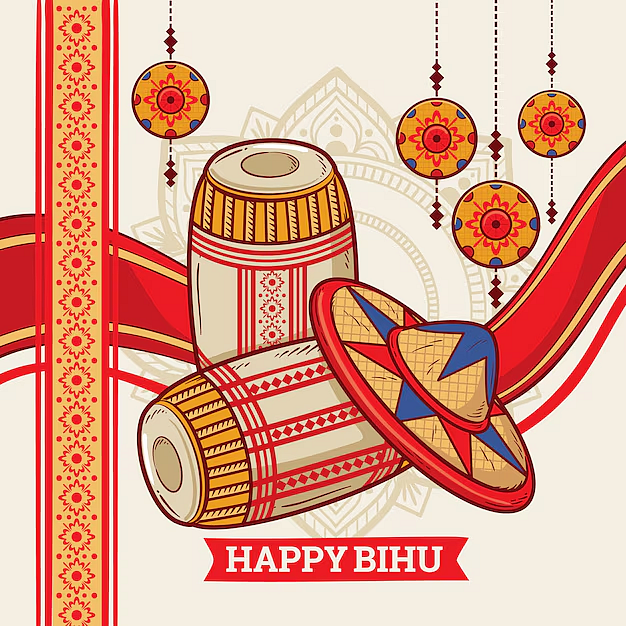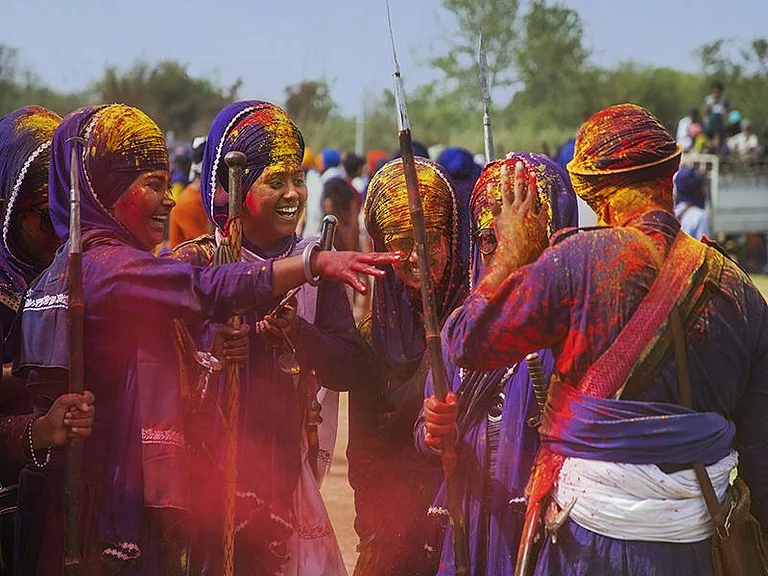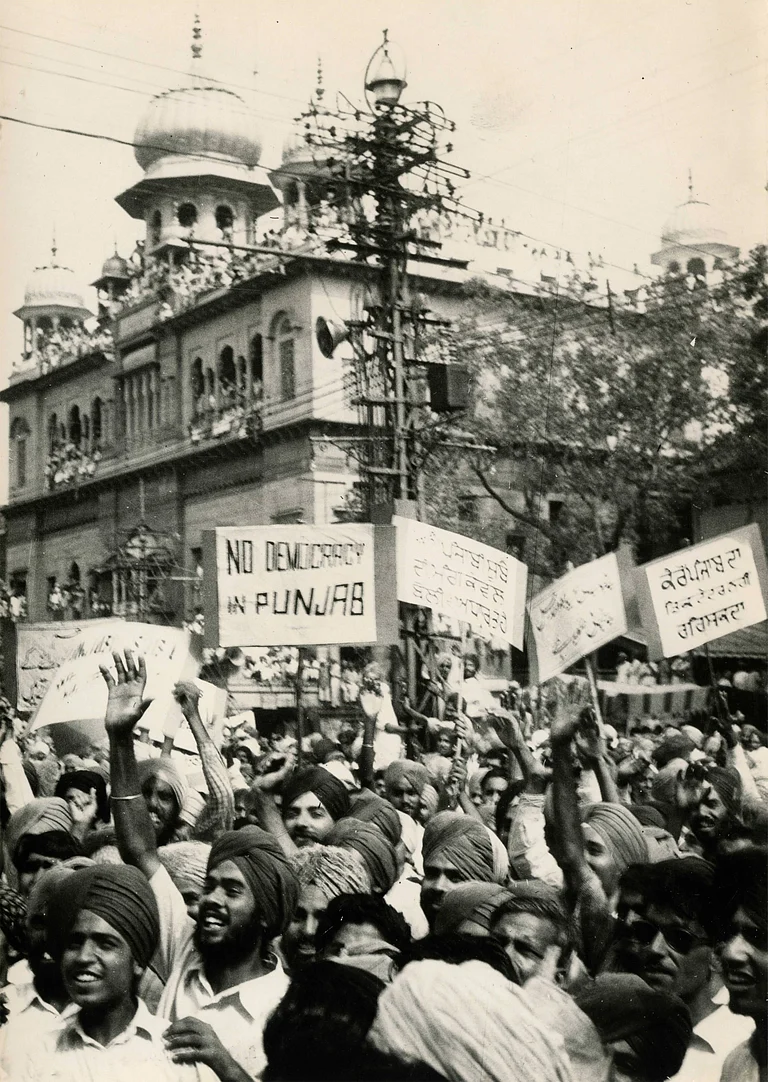Baisakhi, the vibrant and culturally rich festival, is a pivotal moment in the Sikh calendar, marking the start of the solar year and the founding of the Khalsa Panth. Celebrated on April 13 or 14 every year, the festival also marks the beginning of the Punjabi New Year and the harvest festival for farmers. While it holds deep religious significance for Sikhs as the day Guru Gobind Singh established the Khalsa Panth, it is also widely celebrated across India under different names and with unique traditions. As Baisakhi 2025 approaches, explore how India’s states celebrate this vibrant festival.
Punjab- Baisakhi: The Grand Sikh and Harvest Celebration

Being the most important day for the Sikh community, Baisakhi is a festival celebrated with great enthusiasm and joy in the northern state of Punjab. It is the day when the foundation of Khalsa was established and hence it is an auspicious holy day for the Sikh community, the majority of which resides in the state of Punjab. The history of this festival justifies the spectacular celebration of it specifically within the Punjab region. Streets filled with colorful parades, bands marching, decorated floats, and the sound of Bhangra beats mixed with the freshness of the spring season. Gurudwaras are filled with visitors partaking in the customs of the festival, worshipping and serving the community through the medium of Langar Sewa. Associated with the values of Sikhism, which are practiced strongly during the festival, it is a great fusion of frolic celebrations, communal unity, spiritual music, and rich cultural values.
Haryana: A Celebration of Farmers’ Hard Work

Further east in Haryana, locals observing Baisakhi have traditions that are inclined towards the agrarian side of Baisakhi. The celebrations come down to the gatherings of farmers in the fields, ceremoniously harvesting the first crop of wheat, and the display of admiration towards farming tools using flowers and ribbons. Baisakhi fairs are organized in rural areas, featuring folk music, traditional sports like Kabaddi, and the sale of seasonal produce and handicrafts. In Haryana, it marks the harvest season, and people express gratitude for the bountiful crops. Celebrations include visits to Gurudwaras for prayers, and participation in vibrant fairs (melas) where traditional music and dance, particularly folk dances, are enjoyed. These melas often feature local delicacies and competitions, creating a festive atmosphere for people of all ages.
Tamil Nadu: Puthandu (A Hindu New Year)

Down south in Tamil Nadu, the festival not only has a different name but also a different identity. Known with the name of Puthandu, the festival has its roots in the Hindu religion and is considered a Hindu new year. The Festivities begin with a customary holy dip in rivers or sea prior to families gathering to sit down for a grand feast of vegetarian delicacies. The New Year is also marked by the symbolic cleaning of households and the decoration of entryways with colorful Kolam patterns. The day also begins with Kanni, an auspicious sighting of gold, betel leaves, fruits, and flowers, symbolizing prosperity. Families prepare a special dish called Mango Pachadi, which combines sweet, sour, and bitter flavors to signify life’s different experiences.
Assam: Rongali Bihu (The Spring Festival)

It is fascinating how, within a region, the observance of the same festival can differ vastly between various communities. The state of Assam serves as an exemplar of this unique phenomenon of regional cultural variations. for instance, the Bihu festival that coincides with Baisakhi is observed quite differently by the state's Ahom and Karbi populations. Rongali Bihu, also known as Bohag Bihu, marks the Assamese New Year and the arrival of spring. This vibrant festival, celebrated over several days in mid-April, is filled with joyous traditions. The celebrations begin with "Goru Bihu," where livestock are honored, followed by "Manuh Bihu," a time for visiting relatives, exchanging gifts like the traditional "Gamosa," and enjoying festive feasts with traditional delicacies like "Pitha." The air resonates with the lively rhythms of Bihu dance and songs, making it a time of immense cultural celebration and community bonding.
Kerala – Vishu (The Festival of Light and Prosperity)

Kerala celebrates Vishu, the Malayalam New Year.. A central tradition is the "Vishukkani," an auspicious arrangement of items like fruits, flowers (especially the golden "Kani Konna"), coins, and a mirror, which is the first thing people view upon waking. A grand feast, the "Vishu Sadhya," is prepared, and elders give "Vishukaineettam" (gifts of money) to younger family members. Fireworks add to the festive atmosphere, and new clothes are worn, making Vishu a celebration of prosperity and a new beginning
Maharashtra: Gudi Padwa (New year celebration)

Though Gudi Padwa is celebrated a few weeks earlier, it shares similarities with Baisakhi as it marks the Maharashtrian New Year. The festival is marked by the hoisting of the Gudi, a decorated bamboo stick symbolizing victory. Traditional delicacies like Puran Poli and Shrikhand are prepared, and families gather to share festive meals. The day symbolizes new beginnings and prosperity, and often includes processions and cultural events, marking the arrival of spring.
While Baisakhi is most prominently associated with Punjab and the Sikh community, it is fascinating to see how various states across India observe the festival in unique ways. Whether as a harvest festival, New Year celebration, or religious observance, Baisakhi unites different communities in a spirit of gratitude, joy, and new beginnings. The diversity of traditions showcases India's rich cultural fabric and the universal significance of marking seasonal transitions with reverence and festivity.























